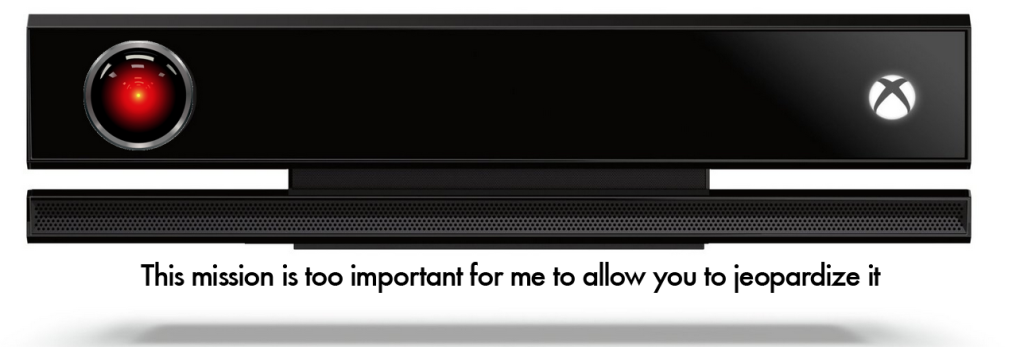Microsoft Promises That New Kinect Is Not (Always) A Crazy Spying Machine
 With the new Xbox One console only weeks away from launch, Microsoft is doing its best to quell concerns that the new Kinect motion and voice sensor will be spying on users and storing important, sensitive information.
With the new Xbox One console only weeks away from launch, Microsoft is doing its best to quell concerns that the new Kinect motion and voice sensor will be spying on users and storing important, sensitive information.
Microsoft updated its Xbox Privacy Statement yesterday to clarify issues related to the new console. For example, the camera on the Kinect can (it’s not required) use facial recognition technology to log you into an account on the console. The company says it is not taking or storing photos of your face.
“To do this it measures distances between key points on your face to create a numeric value that represents only you,” explains Microsoft. “This value is stored as a very long set of numbers. No one could look at the numbers and know they represent you. This information stays on the console and is not shared with anyone.”
There also is no reason for concern that video footage of you playing Dance Central will be stored or shared, claims Microsoft:
For gameplay, Kinect will map distances between your body’s joints to create a stick figure – a “skeleton” – that helps Kinect enable gameplay on your console or between you and another online player. The numeric values for the stick figures are temporarily stored in memory on your console during the gameplay session, then are destroyed when you end the session. If you are playing online, Microsoft may collect those numeric values to enable and improve gameplay and improve the gaming experience. The numeric values sent to Microsoft are destroyed after analysis is complete. The stick figure representation cannot be used to identify you.
This same process applies to facial expressions, which some games and applications may use. Microsoft says the facial details are similarly converted into numerical data that is destroyed at the end of a session.
One area where Microsoft is not promising complete privacy is during chat sessions on Xbox Live.
“You should not expect any level of privacy concerning your use of the live communication features such as voice chat, video and communications in live-hosted gameplay sessions offered through the Services,” writes Microsoft. “We may monitor these communications to the extent permitted by law, but we cannot monitor the entire Service and make no attempt to do so. You understand that others can record and use these communications. Communications in live-hosted gameplay sessions may also be broadcast to others.”
That isn’t really anything new, as many companies offering free chat services reserve the right to monitor and record chats in order to investigate allegations of problem users.
However, the company says that the snooping does not extend to users’ Skype chats, on which Microsoft says it will not eavesdrop.
Another area that may give some people concern, especially since it deals with weight and body issues, is this section on “Exercise Information”:
If you play Xbox Fitness, Xbox will use the Kinect sensor to estimate your exercise information. If you choose to provide optional exercise attributes, such as your height, weight, age, and gender, this will improve the accuracy of the application’s ability to estimate your exercise stats. Your exercise information include such estimates as your heart rate during a certain activity or the number of calories burned during a workout. You can also choose to share your exercise information with other members on Xbox Live in order to participate in Xbox Live Fitness challenges. Any exercise information you provide by virtue of playing Xbox Fitness will be sent to Microsoft, but will not be shared with others on Xbox Live unless you choose to share it. You can delete it at any time via the Xbox Fitness app.
While the new Kinect can be used to control the Xbox One and is intended to always be passively monitoring the room, it can be turned off or removed from the console without negatively affecting the Xbox One’s use (except, of course, for games and applications where the Kinect is integral).
Xbox One Kinect privacy policy promises to keep secrets, but not all of them [Polygon]
Want more consumer news? Visit our parent organization, Consumer Reports, for the latest on scams, recalls, and other consumer issues.

